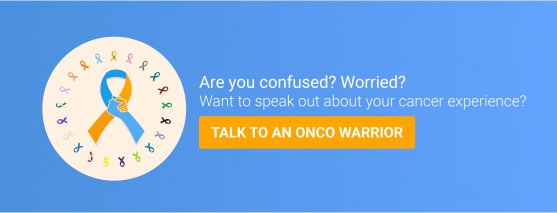If you’ve decided to get back to work now, then congratulations! Making this decision is certainly the first step and you’ve achieved it.
If you are still trying to make up your mind about returning to work, then this article will help you make that choice by giving you a peek into what lies ahead.

Here we look at what to keep in mind when returning to work, along with some tips to make this transition easier.
Let’s first look at some reasons why going back to work is a good idea. You might need to remind yourself of these reasons every time you need some extra motivation.
- An income: Financial security can go a long way in improving your post-cancer lifestyle as well as your self-esteem.
- A routine: Work creates a routine in your life in a way little else can. Having specific work timings with fixed breaks in between will also help you adjust better.
- A distraction: If your mind tends to dwell on what you lost to cancer (health finances, family, friends etc), having fixed tasks assigned to you each day helps divert your focus to the present.
- Socialising: Conversation about work or otherwise, with colleagues, clients or vendors will help you meet more people and improve your social life as well.

In spite of these many benefits, as you can imagine, getting back to work after a break is not always easy. Let’s look at the most common hurdles you are likely to encounter so that you can brace yourself for these.
Long-term side-effects
You might still be dealing with fatigue, loss of memory, irritability, and other lingering side-effects. Let’s look at what you can do about these.
- Speak with your treating medical team about returning to work and see if they can suggest any medications that will help you deal with your side-effects in a better way.
- Lower your expectations of yourself. It is impractical for you to get back to what you were before cancer, within a matter of a few months. It might take longer and you will have to allow yourself that time.
- If you feel too tired during work, break up your working hours into two or three lots, allowing for some resting time in between.
- If you find it difficult to function at your full mental potential, use aids like reminders, schedules, time-tables etc to help you remember tasks, names and details. Keep a notepad at all times to write down important details.
- Alternatively, use voice memos to remind yourself of what was discussed in meetings or during conversations with others.
Speak to your employer about your difficulties
Make a list of all the special allowances you will need to be able to manage your responsibilities. For example, you might need different working hours to what have been assigned to you, or you might need additional time to prepare yourself before presentations.
Explain what you need and why, so that your employer understands the situation at hand. You might not always get the help you need, but you might be surprised at how willing your colleagues are to help you out in whatever way they can.
Many companies now allow for work from home options which are useful in keeping you safe from the risk of infections. You might have to opt out of any travel-based assignments till you have completely recovered.
Know your rights
Find out what your HR policy is on leaves, insurance etc. Knowing what options you have will help you plan ahead. Also ensure you stay within your rights when demanding any allowances from your employer.
Get rid of the guilt
Maybe you take longer to do what you used to, and maybe it seems harder than it used to. That’s normal considering you are recovering from a major disease.
Try not to feel inferior to your peers by drawing unnecessary comparisons with them.
Put your health first
Remember to stick to your schedule for food and medicines even while working.
Keep yourself hydrated at work by sipping on water throughout the day.

Remember to keep aside certain hours of the day to relax and rest your mind and body after work. Learning relaxation techniques like meditation, deep breathing or light exercise might help.
Make yourself comfortable
Ensure that your work space is comfortable for you. Get an ergonomic chair if you don’t already have one.
Stock up on any supplies that you might need while at work, including heating pads, a foot-stool, neck support etc.
Remind yourself that this is a temporary phase of recovery. Things will look much better as your health gradually improves.
FAQs on returning to work after cancer
Now, let’s look at some questions from cancer patients on returning to work after treatment.
- If I am looking for a job, do I have to inform prospective employers about my cancer?
No, your employer does not have the right to know your medical history. They only need to know if you are qualified and capable of doing the job they are offering you.
You might need to inform them of any medical leaves you will need for follow-up visits, remaining chemotherapy sessions etc. But this is only if these leaves are beyond what is already being offered to all their employees.
- What should I do if everyone now treats me differently because of my cancer?
It is likely, at least initially, that your colleagues bring up your cancer in conversations. If you want to avoid it, you can politely accept their concern and then direct the conversation back to work and other topics.
With time, you will find that things go back to as close to normal as possible, with other things taking precedence over your ailment.
- What if I am unable to manage work like I used to?
That is a possibility, as your body and mind are still recovering. Here are some tips to help you.
- Set priorities for the tasks at hand.
- Inform your employers how much work you are able to do, so that their expectations are also managed accordingly.
- Learn to accept help from those who offer it.
- Go easy on yourself if you fail to meet deadlines. Remember that you are doing your best.
- Look for solutions that will help you work more efficiently in the given situation.

- Are there any professionals who can help me adjust to my working life better?
Yes, occupational therapists can help you improve your ability to handle everyday tasks related to work. They can give you advice on how to handle situations at work, based on your specific challenges and limitations.
If you are struggling with physical movements like sitting for long hours, a physiotherapist can help you reduce the pain and improve muscle strength.
If you are facing memory problems and trouble with focusing, then a neuropsychologist can help you with exercises to improve your memory, focus and confidence. 


